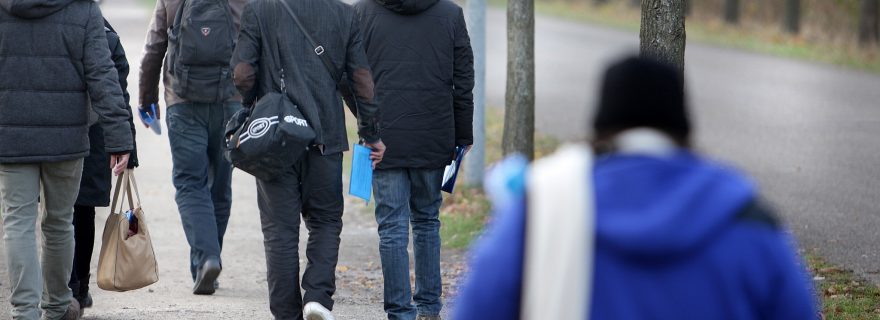Refused asylum seekers and the bed-bath-bread-arrangement in the Netherlands
In The Netherlands, the implementation of the so-called “bed-bath-bread-arrangement” for illegal immigrants is still contested. This raises the question how countries should deal with illegal immigrants, including refused asylum seekers.
The Cooperation Agency of the Association of Netherlands Municipalities reported in late 2015 that the national government and the municipalities were still negotiating on the implementation of what is known as the “bed-bath-bread-arrangement” (hereafter referred to as the arrangement), an arrangement to accommodate illegal immigrants including refused asylum seekers. Especially in light of the recent clearing of the refugee and migrant encampment in Calais (France), it brings up the discussion how to deal with illegal immigrants.
Yet, the negotiations regarding the arrangement have long ceased. One reason for the cessation of the negotiations is that the Dutch coalition parties do not want to risk a possible dissolution of the current government, which is comprised of two parties that have conflicting positions on the issue. In addition, both the Administrative High Court and the Council of State already ruled that municipalities are not obliged to provide the arrangement for refused asylum seekers or are even prohibited from doing so. However, when analysing the current policies of Dutch municipalities by means of in-depth interviews with stakeholders, the results show that in practice municipalities are compelled to provide the arrangement for all refused asylum seekers, because it is arguably the only way to prevent a massive and thus visible increase in homelessness. Moreover, seen from a human rights perspective, asylum seekers have a socially weak status and are in general more vulnerable to exploitation. Exploitation risks include human trafficking, sexual exploitation, but also ending up working in bad and potentially hazardous conditions. Those vulnerabilities and exploitation risks, in turn, negatively affect public law and order. If the basic rights and needs of refused asylum-seekers—including the right to food, shelter and a life in dignity—are not addressed, individuals have to resort to whatever means they have available to sustain themselves. Without access to the legal labour market it means they will have to either work illegally or become involved in petty crime in order to provide for themselves.
When asking how mayors sustain the fragile balance between preserving the rights and freedoms of all citizens on the one hand, and maintaining public order on the other hand, the interviewed experts point out a positive correlation between the protection of individual human rights by providing bed-bath-bread and the maintenance of public order. However, the arrangement in its narrow focus cannot help refused asylum seekers with their future lives; both inside and outside the Netherlands. Experts interviewed for this study pointed out that there are still risks of violations of human rights. Human dignity can be at stake because of the desperate situation in which refused asylum seekers find themselves in. Interviewed experts also stressed that refused asylum seekers who loiter around the streets negatively affect the perceived sense of security of local residents as they sometimes do commit acts of theft and other deviant behaviour.
It would be best for the national government to endorse the arrangement officially for all refused asylum seekers within the Netherlands in order to set minimum standards. In addition to national minimum standards, municipalities should be given the steering competences and flexibility to implement further measures aimed at reducing risks, including the ones mentioned above. An extra measure like individual counselling, in combination with the arrangement, can enable refused asylum seekers to orientate toward a realistic future prospect like returning to the country of origin. Moreover, the provision of short vocational training can restore human dignity by providing a solid basis in order to start a new lease of life in the country of origin.


